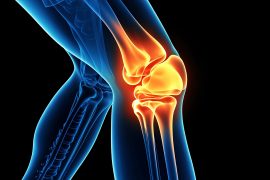Obesity is becoming a bigger issue worldwide, and in India, many people are facing health problems related to their weight. Anti-Obesity Day is observed every year on November 26 to bring attention to this growing concern.[1] It’s a day that reminds us how important it is to manage obesity and highlights the different treatment options available. One of the most effective therapies for extreme obesity is bariatric surgery, which helps patients lose weight and improve their health.[2] In this guide, we will break down what bariatric surgery is, how it works, and why it’s such an important tool in the fight against obesity.
Anti-Obesity Day and Bariatric Surgery’s Role
Anti-Obesity Day is about raising awareness of the dangers of obesity and encouraging people to live healthier lives. It’s a day to focus on preventing and treating obesity, reminding everyone to take charge of their health. While lifestyle changes like eating better and exercising are usually the first steps, bariatric surgery has become an important option for people who are dealing with severe weight problems and haven’t had success with other methods. This surgery can offer long-term relief for people suffering from obesity-related health issues and can be life-changing.
Obesity and Its Health Risks
What is Obesity?
Obesity is when a person has too much body fat, and it’s not just about how someone looks. It’s usually measured using something called the Body Mass Index (BMI), which checks if your weight is healthy compared to your height. If your BMI is over 30, it means you’re considered obese.[3] This isn’t just about appearance; it’s a serious health issue that can lead to many problems if it’s not managed well.
Health Risks of Obesity [4]
There can be several serious health problems due to obesity. Some of the most common risks include:
- Heart disease: Extra weight puts strain on the heart, increasing the risk of heart attacks and strokes.
- Type 2 diabetes: Obesity causes insulin resistance, which can progress to type 2 diabetes.
- High blood pressure: Carrying excess weight can cause your blood pressure to rise, adding more pressure on the heart and blood vessels.
- Joint problems: Extra weight puts stress on the joints, especially the knees and hips, often leading to pain and conditions like osteoarthritis.
- Sleep apnea: Obesity can cause breathing issues during sleep, such as sleep apnea, which can affect overall health.
Because of these risks, finding effective ways to manage obesity is essential, and this is where bariatric surgery can be a helpful solution.
What is Bariatric Surgery?[5]
Bariatric surgery is a type of weight-loss surgery that involves altering the digestive system to help people lose weight. It is usually indicated for people with extreme obesity who have not been able to lose weight through diet and exercise alone.
Types of Bariatric Surgery
There are several types of bariatric surgery, each designed to help with weight loss in different ways. Some of the most common types include:
- Gastric Bypass Surgery: This surgery forms a tiny pouch at the top of the stomach that links directly to the small intestine. This can reduce how much food the stomach can hold and changes how nutrients are absorbed by the body.
- Sleeve Gastrectomy: During this surgery, a larger portion of the stomach is removed. This leaves behind a small, sleeve-shaped stomach. This limits the amount of food a person can consume at once.
- Adjustable Gastric Banding: A band is wrapped around the upper portion of the stomach to form a tiny pouch. The pouch’s size can be modified over time to assist in limiting food intake.
Each type of surgery has its own benefits and things to consider, and the best option depends on the patient’s health needs and weight loss goals.
Who is Eligible for Bariatric Surgery?[6]
Bariatric surgery isn’t suitable for everyone. It’s typically considered for individuals who meet certain criteria, such as:
- A BMI of 40 or above indicates severe obesity.
- A BMI of 35 or greater, in addition to obesity-related health issues such as type 2 diabetes or heart disease.
- Those who must have tried traditional weight loss methods, like diet and exercise, without success.
A detailed assessment by a doctor is important to check whether bariatric surgery is the right choice for you.
How Bariatric Surgery Works[7]
Bariatric surgery helps with weight loss. It either limits the amount of food that the stomach can hold or alters how the body absorbs nutrients. After surgery, patients eat less food, feel full more quickly, and often absorb fewer calories from the food they eat. This results in gradual and sustained weight loss.
Benefits of Bariatric Surgery[8]
There are many benefits to bariatric surgery, including:
- Significant weight loss: Many individuals lose a significant amount of weight during the first year after surgery.
- Improvement in obesity-related health conditions: Bariatric surgery can help reduce or eliminate diseases like type 2 diabetes, hypertension, and sleep apnea.
- Better quality of life: After losing weight, many patients experience improved mobility, increased energy, and better overall health.
- Reduced risk of future health issues: Patients who lose weight reduce their risk of acquiring future health concerns such as heart disease and joint pain.
Risks and Considerations
As with any surgery, there are risks involved with bariatric surgery. These can include complications such as infections, blood clots, or adverse reactions to anesthesia. Patients should discuss these concerns with their doctor first and consider the potential benefits against the dangers before making a decision.
Risks and Considerations
As with any surgery, there are risks involved with bariatric surgery. These can include complications such as infections, blood clots, or adverse reactions to anesthesia. Patients should discuss these concerns with their doctor first and consider the potential benefits against the dangers before making a decision.
Post-Surgery Care and Recovery
Recovery after bariatric surgery requires careful attention to diet and lifestyle changes. Patients will need to follow a special diet in the weeks after surgery, beginning with liquids and gradually progressing to solid foods. Regular follow-up appointments with healthcare providers are essential to monitor progress and address any potential issues.
Physical activity and maintaining a healthy diet will also be important parts of long-term success after surgery.
Why Bariatric Surgery is a Key Solution for Obesity[9]
Bariatric surgery is not a quick remedy for obesity, but it is an effective tool for those who have failed to achieve long-term weight loss using other approaches. For many, it offers a new lease on life, improving health, mobility, and overall quality of life. Bariatric surgery, which addresses both the physical and psychological elements of obesity, can be an effective treatment option for patients suffering from extreme obesity.
Conclusion
Bariatric surgery is a solution for people who are unable to lose weight through traditional measures such as diet and exercise. By helping patients achieve sustained weight loss, it can lower the chances of obesity-related health issues and improve overall health. If you or someone you know is dealing with severe obesity, bariatric surgery might be worth considering. Be sure to talk to a healthcare provider to see if it’s the right option for you.
References:
[1]https://www.medicoverhospitals.in/articles/anti-obesity-day-2022
[2]https://my.clevelandclinic.org/health/treatments/bariatric-surgery#:~:text=Bariatric%20Surgery-,Bariatric%20Surgery,sugar%2C%20blood%20pressure%20and%20cholesterol.
[3]https://www.nhlbi.nih.gov/health/educational/lose_wt/risk.htm
[4]https://www.mayoclinic.org/diseases-conditions/obesity/symptoms-causes/syc-20375742
[5]https://my.clevelandclinic.org/health/treatments/bariatric-surgery#:~:text=Bariatric%20Surgery-,Bariatric%20Surgery,sugar%2C%20blood%20pressure%20and%20cholesterol.
[6]https://www.pennmedicine.org/for-patients-and-visitors/find-a-program-or-service/bariatric-surgery/who-is-a-candidate#:~:text=Body%20weight%20greater%20than%20100,sleep%20apnea%20and%20gallbladder%20disease.
[7]https://www.yalemedicine.org/conditions/bariatric-surgery-for-weight-loss#:~:text=These%20surgeries%20work%20mainly%20by,of%20intestinal%20hormones%2C%20affecting%20appetite.
[8]https://www.mayoclinic.org/tests-procedures/bariatric-surgery/about/pac-20394258
[9]https://www.ncbi.nlm.nih.gov/pmc/articles/PMC4888907/





Comments are closed.